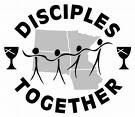FOR IMMEDIATE RELEASE
ADMINISTRATIVE COMMITTEE HEARS REPORT ON NEW APPROACH FOR GENERAL ASSEMBLY ACTION
(Indianapolis, Ind. – DNS – Nov. 1, 2008) – Disciples may have new ways of expressing their views on important moral, ethical or religious issues at General Assembly meetings as part of a report discussed at the Oct. 31-Nov. 1 Administrative Committee.
The report was among a number of items brought before the fall Administrative Committee meeting. It recommends combining three categories of General Assembly business (Sense of the Assembly Resolutions, Study Documents, and Items for Research and Reflection) into a new category – Call of the Assembly to the Church for Study, Reflection and Action.
The Standing Committee on Renewal and Structural Reform (SCRSR) developed the proposal following a request from the Administrative Committee at its meeting in mid-April, to look at new ways for the Church to address issues of pressing social concern. Many of those issues have come before the General Assembly as Sense of the Assembly resolutions.
“This proposal from the standing committee looks at news ways for churches to engage in the discussion of controversial issues, with an emphasis on prayerful discussion resulting in faithful action,” said General Minister and President Sharon Watkins.
The new process suggests that the General Board select no more than three Calls to come before each General Assembly. The purpose in limiting the number of Calls is to place a realistic agenda before the church of what can be accomplished between assemblies, standing committee members say. However, the Office of General Minister and President will be required to list all Calls that were considered in the General Assembly docket. The 2007 General Assembly looked at 11 business items that fit in the three categories that may be combined.
“We hope this process will allow all parts of the Church to engage more deeply in matters of theological, ethical and moral importance,” said Associate General Minister and Vice-President Todd Adams, who made the report on behalf of the SCRSR. “We believe three Calls is a manageable number that will allow congregations, regions, general ministers and our partners to equip themselves to carry out study, reflection and action.”
The SCRSR suggests several criteria that a Call should meet prior to submission:
- A Call proposal must be submitted with a brief historical statement, rationale describing why this issue should be considered by the whole church, and a list of resources that can be made available to inform the Church in its consideration of and action on the issue.
- A Call will not be eligible for consideration if either of the previous two General Assemblies has looked at the same subject, unless its content or the circumstances leading to its submission are substantially different.
- All expressions of the Church – especially congregations, are urged to consider and take action on a moral, ethical or religious matter confronting the church, the nation or the world.
After a review, the General Minister and President (GMP) will forward three suggested Calls to the General Board. The General Board will then review the GMP’s suggestions and decide on the three Calls that will be forwarded to the General Assembly. As part of its deliberations, the General Board will name ways in which the Church is already responding to this matter. The General Board also will attach an estimate of the financial impact, if any, that the Call might incur, along with a proposal for underwriting the cost.
At the General Assembly, each Call will be voted on and the vote recorded. The vote will be to affirm or not to affirm the particular topic as a matter for action throughout the Church. Calls also may be discussed or considered through the use of a number of models, including a Town Hall Format, an All-Assembly session that might involve a pastoral statement by the GMP’s Pastoral Team, or a general question and answer period. Other General Assembly discussion methods might involve a learning track model, a large group discussion model such as World Café, or web-based dialogue.
After the General Assembly, and once the Assembly has engaged a Call, the GMP will write a pastoral letter to the Church urging the Church to further consideration and action. The pastoral letter will be understood to be speaking to the Church not for the Church.
The Administrative Committee accepted the SCRSR report and provided feedback for the standing committee. The SCRSR will meet again in February for further discussion, and will develop a proposal which will be submitted to the General Board in mid-April for its review. The suggested change requires action by the General Assembly which will meet July 29- August 2 in Indianapolis. The 2011 General Assembly is the earliest that the “Call of the Assembly to the Church for Study, Reflection and Action” process could be used.
###
Written by: Wanda Bryant Wills
wbwills@cm.disciples.org


No comments:
Post a Comment